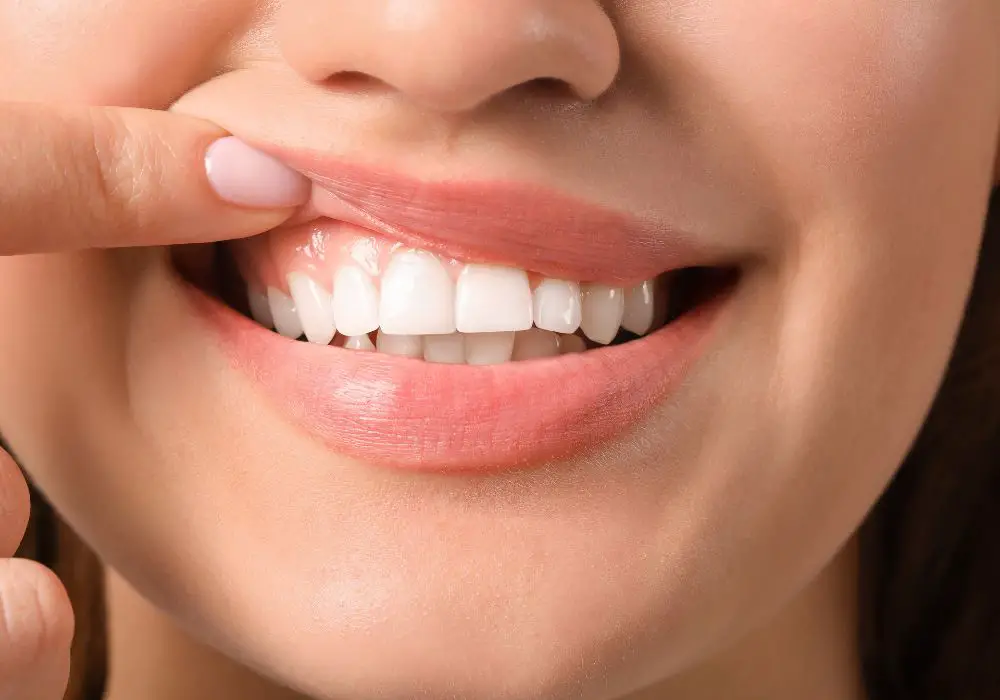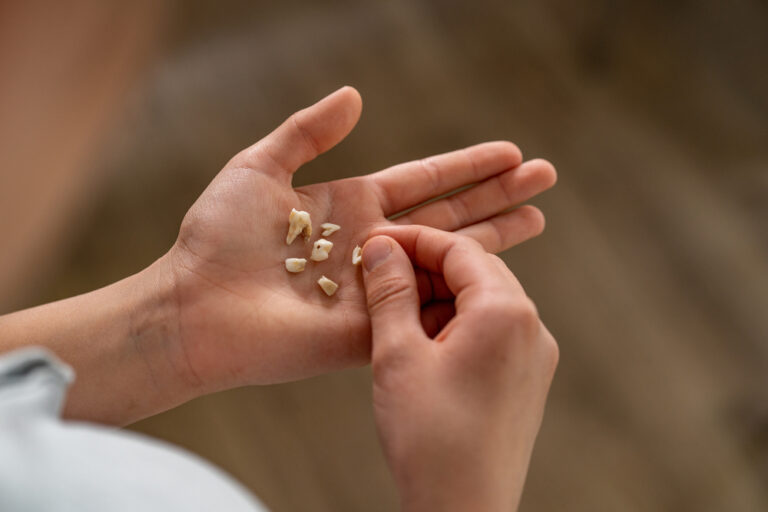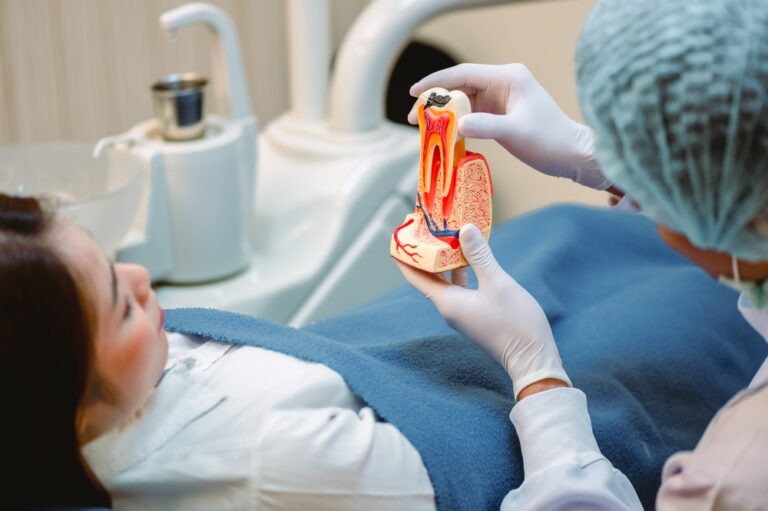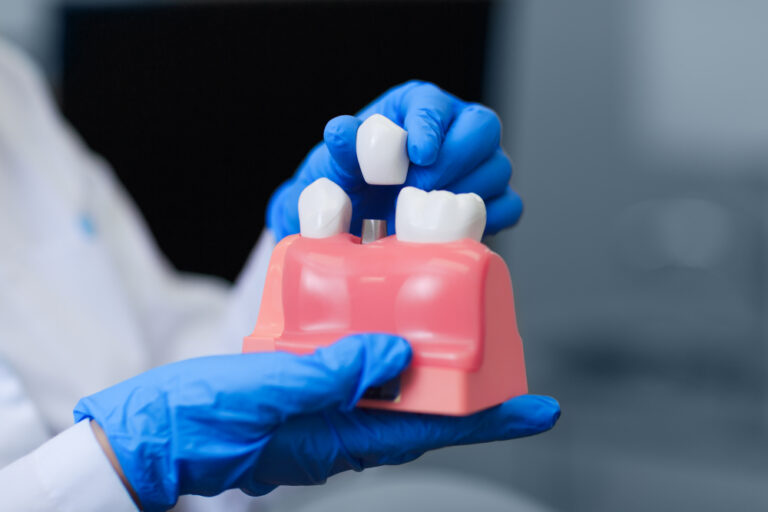Have you ever wondered if there is a mineral that can heal your gums and teeth? While there are many dental treatments available, natural remedies are becoming increasingly popular for their effectiveness and minimal side effects. One such remedy is the use of minerals to promote oral health.
Scientists at the National Institute of Dental Research have developed a sour liquid that contains microscopical healing ingredients. This liquid has shown promising results in regrowing teeth and gums almost overnight by reaching deep inside the gum pockets and between teeth. Additionally, remineralization is a natural tooth repair process where your body takes calcium and phosphate minerals from your saliva and deposits them in your enamel. This process strengthens your teeth and protects them against cavities and tooth decay.
If you’re looking for a natural way to improve your dental health, minerals may be the answer. By incorporating certain minerals into your diet or using mineral-based dental treatments, you can promote tooth remineralization and potentially heal your gums and teeth. Keep reading to learn more about the minerals that can help restore your oral health.
Understanding Minerals and Oral Health

When it comes to maintaining good oral health, minerals play a crucial role. They help strengthen teeth, repair enamel, and prevent gum disease. In this section, we will explore the role of minerals in dental health and the minerals essential for gums and teeth.
Role of Minerals in Dental Health
Minerals are essential for maintaining healthy teeth and gums. They help to strengthen tooth enamel, which is the hard outer layer of your teeth. Enamel is made up of minerals, mainly calcium and phosphate. These minerals help to protect the teeth against cavities and tooth decay.
Minerals also play a significant role in maintaining healthy gums. Gums are made up of connective tissue, and minerals such as vitamin C, iron, and calcium are essential for maintaining healthy connective tissue. Without these minerals, gums can become inflamed and swollen, leading to gum disease.
Minerals Essential for Gums and Teeth
There are several minerals that are essential for maintaining healthy gums and teeth. These include:
- Calcium: Calcium is essential for building strong bones and teeth. It also helps to protect teeth against decay and cavities.
- Phosphate: Phosphate works together with calcium to strengthen tooth enamel and prevent cavities.
- Vitamin C: Vitamin C is essential for maintaining healthy gums. It helps to build and repair connective tissue, which is essential for healthy gums.
- Iron: Iron is essential for maintaining healthy connective tissue in the gums. A deficiency in iron can lead to inflamed gums and sores in the mouth.
In conclusion, minerals play a crucial role in maintaining good oral health. Calcium, phosphate, vitamin C, and iron are essential for maintaining healthy gums and teeth. By ensuring that you have an adequate intake of these minerals, you can help to prevent gum disease and maintain good oral health.
Specific Minerals That Promote Oral Health
When it comes to maintaining healthy teeth and gums, minerals play a vital role. Here are some minerals that you should include in your diet to promote oral health.
Calcium
Calcium is an essential mineral for maintaining strong teeth and bones. It helps to remineralize tooth enamel, which is the hard outer layer of your teeth. Calcium also supports the jawbone, which holds your teeth in place. You can get calcium from dairy products, leafy greens, and fortified foods.
Phosphorus
Phosphorus is another mineral that is crucial for oral health. It helps to strengthen tooth enamel and supports healthy bones. Phosphorus is found in many foods, including meat, fish, poultry, dairy products, and nuts.
Vitamin D
Vitamin D is necessary for the absorption of calcium and phosphorus. It helps to strengthen teeth and bones and supports the immune system. You can get vitamin D from sunlight, fatty fish, and fortified foods.
Magnesium
Magnesium is a mineral that helps to build strong teeth and bones. It also supports healthy gum tissue. Magnesium is found in many foods, including leafy greens, nuts, and whole grains.
Potassium
Potassium is a mineral that helps to neutralize acids in the mouth, which can cause tooth decay. It also supports healthy bones. Potassium is found in many foods, including bananas, potatoes, and leafy greens.
Incorporating these minerals into your diet can help to promote oral health and prevent tooth decay and gum disease. Remember to brush and floss regularly and see your dentist for regular check-ups and cleanings.
How to Incorporate These Minerals in Your Diet

If you want to promote healthy teeth and gums, incorporating certain minerals into your diet can be helpful. Here are some ways to get more of these minerals in your diet:
Dietary Sources
- Calcium: Dairy products like milk, cheese, and yogurt are excellent sources of calcium. You can also get calcium from leafy green vegetables like kale and spinach, as well as fortified foods like tofu and orange juice.
- Magnesium: Foods high in magnesium include nuts and seeds, whole grains, leafy green vegetables, and legumes like black beans and lentils.
- Potassium: Bananas are a well-known source of potassium, but you can also get it from other fruits like oranges and cantaloupe, as well as vegetables like sweet potatoes and avocados.
- Phosphorus: Foods high in phosphorus include dairy products, meat, poultry, fish, and nuts.
- Zinc: Zinc can be found in oysters, beef, pork, chicken, beans, and nuts.
Supplements
If you’re not getting enough of these minerals from your diet, supplements can be a good option. However, it’s important to talk to your doctor before taking any supplements to make sure they’re right for you and won’t interact with any medications you’re taking.
When choosing supplements, look for ones that contain the specific mineral you’re looking for and choose a reputable brand. It’s also important to follow the recommended dosage and not exceed it, as too much of any mineral can be harmful.
Incorporating these minerals into your diet can help support healthy teeth and gums, but it’s important to remember that they’re just one part of an overall healthy lifestyle. Be sure to also brush and floss regularly, visit your dentist for check-ups and cleanings, and avoid sugary and acidic foods and drinks that can damage your teeth.
The Science Behind Minerals and Oral Health
When it comes to oral health, minerals play a crucial role in maintaining healthy teeth and gums. In this section, we will explore the scientific evidence behind minerals and their impact on oral health.
Research Studies
Several research studies have been conducted to investigate the role of minerals in oral health. One such study conducted by the National Institute of Dental and Craniofacial Research (NIDCR) found that minerals like calcium and phosphorus contribute to dental health by protecting and rebuilding tooth enamel. Enamel is the hard outer protective layer of the tooth and is the hardest substance in the human body.
Another study published in the Journal of Clinical Periodontology found that magnesium, calcium, and potassium can help prevent gum disease. These minerals can help reduce inflammation and promote healthy gum tissue.
Scientific Evidence
Scientific evidence suggests that minerals like calcium, phosphorus, magnesium, and potassium can help maintain healthy teeth and gums. These minerals help protect tooth enamel, prevent gum disease, and promote healthy gum tissue.
One effective toothpaste that you can use to remineralize your teeth is Biomin. Biomin contains BioMin® C, which is a patented mineral combination that helps repair and strengthen tooth enamel. This toothpaste has been clinically proven to reduce sensitivity and prevent cavities.
In addition to using toothpaste that contains minerals, you can also get these minerals from your diet. Foods that are rich in calcium, phosphorus, magnesium, and potassium include dairy products, leafy green vegetables, nuts, and seeds.
In conclusion, minerals play a vital role in maintaining healthy teeth and gums. Research studies and scientific evidence suggest that minerals like calcium, phosphorus, magnesium, and potassium can help protect tooth enamel, prevent gum disease, and promote healthy gum tissue. By incorporating these minerals into your diet and using toothpaste that contains them, you can help maintain optimal oral health.
Potential Risks and Precautions

When it comes to using minerals to heal gums and teeth, it is important to be aware of the potential risks and precautions. Here are some things to keep in mind:
Overconsumption Risks
While minerals are essential for good oral health, overconsumption can lead to adverse effects. For example, excessive intake of calcium supplements can lead to kidney stones and other health problems. Similarly, too much iron can cause constipation, nausea, and other digestive problems.
It is important to follow the recommended daily intake guidelines for each mineral and to avoid taking more than the recommended amount. If you are unsure about how much of a particular mineral you need, consult with your dentist or healthcare provider.
Interactions with Medications
Some minerals can interact with medications, which can lead to serious health problems. For example, calcium supplements can interfere with the absorption of certain antibiotics, such as tetracycline. Iron supplements can also interfere with the absorption of some medications, including thyroid hormones.
If you are taking any medications, it is important to talk to your healthcare provider before taking any mineral supplements. They can help you determine if there are any potential interactions and advise you on the best course of action.
In summary, while minerals can be beneficial for healing gums and teeth, it is important to use them responsibly and in consultation with a healthcare provider. Be sure to follow the recommended daily intake guidelines and to be aware of any potential interactions with medications.
Frequently Asked Questions
What vitamins or minerals can help with gum and teeth health?
There are several vitamins and minerals that can help improve gum and teeth health. Some of the most important ones include Vitamin C, Vitamin D, Calcium, and Phosphorus. Vitamin C is essential for the production of collagen, which is important for gum health. Vitamin D helps the body absorb calcium, which is necessary for strong teeth and bones. Calcium and phosphorus are both important for tooth enamel and bone health.
Are there any natural supplements that can improve gum disease?
Yes, there are several natural supplements that can help improve gum disease. Some of the most effective ones include CoQ10, Vitamin C, and Zinc. CoQ10 is an antioxidant that can help reduce inflammation in the gums. Vitamin C can help strengthen the immune system and improve gum health. Zinc is important for wound healing and can help reduce inflammation in the gums.
How can I strengthen my tooth enamel?
To strengthen your tooth enamel, it’s important to practice good oral hygiene. This includes brushing twice a day with a fluoride toothpaste, flossing daily, and using mouthwash. You can also improve your diet by eating foods that are rich in calcium and phosphorus, such as dairy products, leafy greens, and nuts.
What are some ways to regrow gums and teeth?
While it’s not possible to regrow gums or teeth once they have been lost, there are some treatments that can help improve gum health and prevent further damage. These treatments include scaling and root planing, gum grafts, and dental implants.
What are the best vitamins for teeth and bones?
The best vitamins for teeth and bones include Vitamin D, Calcium, and Phosphorus. Vitamin D helps the body absorb calcium, which is necessary for strong teeth and bones. Calcium and phosphorus are both important for tooth enamel and bone health.
Can vitamins or minerals help with tooth decay?
While vitamins and minerals alone cannot prevent tooth decay, they can help improve overall oral health and reduce the risk of tooth decay. Some of the most important vitamins and minerals for oral health include Vitamin C, Vitamin D, Calcium, and Phosphorus.






